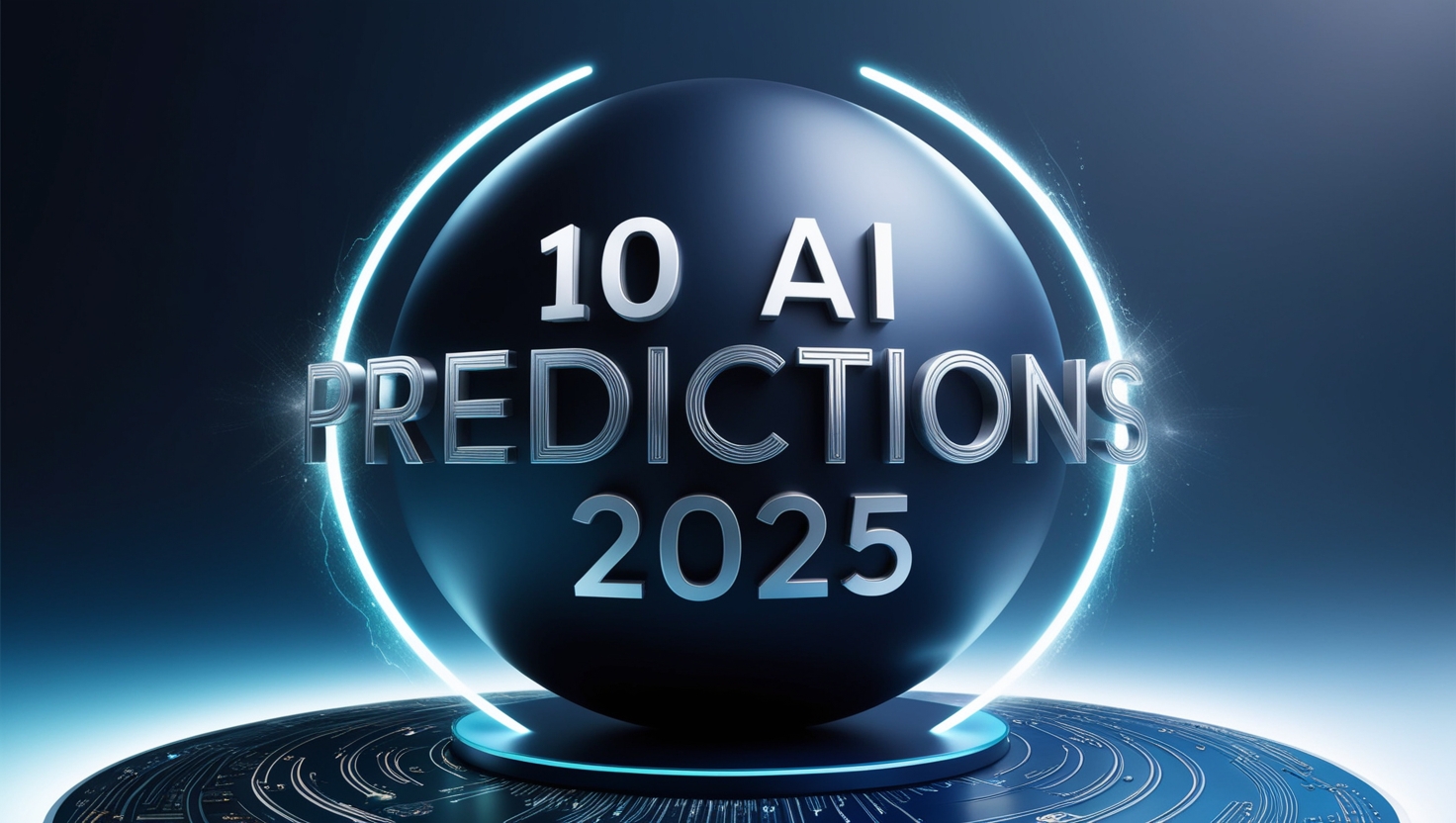Introduction
Artificial intelligence (AI) is undoubtedly one of the most promising technologies of our time. From simplifying daily tasks to automating complex processes, AI is transforming many aspects of our lives. By 2025, AI could play an even more significant role in fields like healthcare, education, finance, and art. This article explores the key predictions for AI in the near future and how they could reshape our daily lives.
1. AI and Job Automation
One of the primary impacts of AI will be the automation of repetitive tasks and business processes. While some jobs may be replaced by machines, new, more creative, and technical roles will emerge. Businesses will use AI to automate processes like inventory management, data analysis, and even customer service. This will provide employees with more time to focus on higher-value tasks.
2. AI in Healthcare
AI in the medical field is already expanding, and by 2025, we will see remarkable advancements. AI algorithms will be able to analyze medical images with accuracy rivaling that of experienced radiologists. Diagnoses will become faster and more reliable, allowing for early disease detection. Moreover, AI will be used to design personalized treatments specifically tailored to each patient.
3. The Rise of Generative AI
Generative AI is booming, especially with tools capable of creating texts, images, videos, and even music. By 2025, these tools will be widely used in fields such as advertising, marketing, and even artistic creation. For example, artists might collaborate with AI to produce unique works that blend human creativity with the computational power of AI.
4. AI in Data Management
The management of big data will become more sophisticated thanks to AI. Companies will be able to collect and analyze vast amounts of data in real-time. This will enable more informed and quicker decision-making based on predictive analytics. AI will be essential in turning raw data into actionable insights, both in the private and public sectors.
5. AI and Autonomous Vehicles
Autonomous vehicles are one of the most exciting applications of AI. By 2025, self-driving cars are expected to be widely adopted, with AI systems capable of making real-time decisions to avoid accidents and optimize routes. This could significantly reduce road accidents and improve traffic flow.
6. AI in Education
AI will also revolutionize the education sector by 2025. AI-powered learning systems will adapt to each student’s needs, offering personalized instruction. AI will be able to analyze student performance and recommend resources tailored to their level. Additionally, teachers will benefit from AI tools to track student progress and provide real-time feedback.
7. AI and Cybersecurity
With the rise of cyberattacks, AI becomes crucial for enhancing cybersecurity. By 2025, AI-powered security systems will detect threats in real-time, identify suspicious behavioral patterns, and respond quickly to prevent breaches. AI could also be used to anticipate potential threats, further strengthening the protection of sensitive data.
8. AI in Finance
In the financial sector, AI will have a major impact. AI-driven systems will be able to manage investment portfolios more effectively by analyzing millions of data points in real-time. Predictive algorithms will be used to anticipate economic trends and market fluctuations. Banks and financial institutions will rely on these technologies to offer faster, more personalized services.
9. AI and Human Creativity
AI doesn’t just automate tasks; it can also enhance human creativity. By 2025, we will see more collaborations between AI and content creators. Whether it’s designers, writers, musicians, or artists, AI will enable new forms of creation, resulting in interactive works and immersive artistic experiences.
10. AI and Ethics
With the rise of AI, ethical questions must be addressed. How do we regulate this technology to ensure it is used responsibly? By 2025, governments and companies will need to implement regulations to ensure ethical use of AI. This will include safeguarding privacy, addressing algorithmic biases, and ensuring that AI systems do not harm society.
Conclusion
Artificial intelligence will undoubtedly transform many sectors in the coming years. By 2025, AI could improve healthcare, security, education, and even our creativity. It’s essential to prepare for these changes and explore how AI can benefit our daily and professional lives. By adapting our skills and systems, we can take advantage of these technological advancements to build a more connected and smarter future.
FAQ
1. Can AI completely replace human jobs?
No, AI will automate some tasks, but it will also create new job opportunities that require human creativity and expertise.
2. How will AI improve medical treatments?
AI will enable more accurate diagnostics and the development of personalized treatments based on individual patient data.
3. Can AI create original artistic works?
Yes, generative AI will be used to create new works of art, in collaboration with human artists.
4. Does AI pose a threat to privacy?
Regulations will be necessary to ensure that AI respects privacy and does not infringe on individual rights.
5. How will AI impact education?
AI will offer personalized learning experiences and help educators track student progress more effectively.

